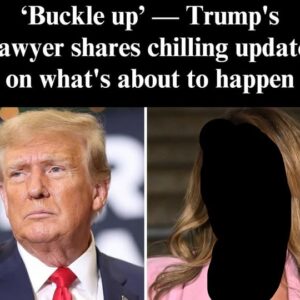Former President Donald Trump has taken another major step in reshaping federal firearms policy, directing Attorney General Pam Bondi to conduct a comprehensive review of gun regulations implemented under the Biden administration. This move signals a potential reversal of several key Biden-era reforms, including enhanced background checks for young buyers, expanded funding for red flag laws, and the closure of the so-called “boyfriend loophole” designed to prevent convicted domestic abusers from obtaining firearms.
Trump’s directive aligns with his long-standing support for Second Amendment rights, a position that played a significant role in his previous presidential campaigns. His administration previously rolled back gun control measures, including restrictions on firearm exports and Obama-era regulations concerning gun ownership for certain individuals with mental health conditions. Now, with Bondi leading the Department of Justice, pro-gun advocates anticipate a significant shift in federal firearm policies, potentially undoing many of the restrictions put in place during Biden’s term.
Key Biden-Era Gun Reforms Under Review
Among the most notable policies now under scrutiny is the expanded background check requirement for buyers under 21. This measure, part of the Bipartisan Safer Communities Act, aimed to close loopholes that allowed young adults to purchase guns without undergoing additional scrutiny. The law mandated more extensive background checks, requiring authorities to review juvenile and mental health records before approving firearm sales to individuals under 21. Critics argued that this unfairly targeted young adults who have a constitutional right to bear arms, while supporters maintained that the regulation was necessary to prevent mass shootings and gun violence among younger demographics.
Another major point of contention is the increased federal funding for red flag laws, which allow authorities to temporarily confiscate firearms from individuals deemed a risk to themselves or others. These laws, implemented in multiple states, have sparked intense debate. Proponents argue they prevent suicides and mass shootings by ensuring that individuals experiencing crises do not have immediate access to firearms. However, gun rights organizations, including the NRA and Gun Owners of America, have consistently opposed red flag laws, citing due process concerns. They argue that such laws allow for the confiscation of legally owned firearms based on accusations rather than concrete evidence, potentially violating citizens’ constitutional rights.
Additionally, the review includes a reconsideration of the boyfriend loophole provision, which expanded the definition of domestic abuser restrictions to include non-married partners. Prior to Biden’s reform, federal law only prohibited gun ownership for domestic abusers who were married to, cohabitating with, or had children with their victims. The Biden administration expanded these restrictions to apply to dating partners convicted of domestic violence, arguing that non-married abusers pose an equal risk. Gun rights groups, however, contend that this law unfairly punishes individuals who may have been involved in contentious disputes without sufficient due process protections.
The Push for Suppressor Deregulation
While much of the focus remains on Biden-era reforms, the Hearing Protection Act (HPA) is also gaining traction under the new administration. Introduced by Rep. Ben Cline (R-VA) and Sen. Mike Crapo (R-ID), the bill seeks to ease federal regulations on firearm suppressors, commonly known as silencers. Currently, suppressor buyers must undergo an extensive application process, obtain a special federal license, and pay a $200 tax stamp under the National Firearms Act of 1934 (NFA). This process can take up to a year due to ATF background checks and regulatory hurdles.
Proponents of the bill argue that suppressors provide hearing protection for gun owners, reducing the risk of permanent hearing damage caused by prolonged exposure to firearm noise. They also point out that suppressors help minimize recoil, making firearms easier to handle and more accurate. The National Shooting Sports Foundation (NSSF) and other gun rights organizations strongly support deregulation, claiming that suppressors are wrongly stigmatized and that Hollywood portrayals have exaggerated their capabilities. Unlike in movies, where silencers render gunfire almost inaudible, real-world suppressors merely reduce gunshot noise to levels comparable to a jackhammer or loud motorcycle.
If the Hearing Protection Act passes, suppressors would be removed from NFA oversight, making them available for purchase with a standard federal background check, much like traditional firearms. Buyers would no longer need to pay the extra tax or endure months-long waiting periods, which gun rights advocates view as an unnecessary burden on law-abiding citizens.
The Controversy Over Suppressor Accessibility
Despite support from pro-gun lawmakers and advocacy groups, the push to deregulate suppressors has drawn strong opposition from gun control activists and some law enforcement agencies. Critics argue that suppressors, while not making guns completely silent, do make it more difficult to detect gunfire in public settings. They warn that increased availability could complicate law enforcement efforts to locate active shooters in emergencies.
Organizations like Everytown for Gun Safety and Brady: United Against Gun Violence have warned that removing suppressor restrictions could increase the risk of criminal misuse. They cite incidents such as the 2019 Virginia Beach mass shooting, in which the shooter used a suppressor while killing 12 people. Gun control groups argue that such devices could make it harder for victims and law enforcement to respond to gunfire quickly.
However, statistics from the Bureau of Alcohol, Tobacco, Firearms and Explosives (ATF) show that suppressors are rarely used in violent crimes. A 2017 ATF report found that out of 1.3 million registered suppressors, only 44 were used in crimes over a 10-year period. Gun rights advocates argue that suppressor ownership is already widespread among law-abiding citizens, and easing regulations would not change their criminal usage rates.
The Road Ahead for Gun Policy Under Trump
With Attorney General Bondi now leading the review of federal gun policies, Republicans in Congress are expected to push for legislation that aligns with Trump’s pro-Second Amendment stance. The Hearing Protection Act will likely see renewed momentum, along with possible rollbacks of Biden’s background check expansions and red flag law funding.
While the Republican-controlled House of Representatives is expected to pass these measures, the Senate remains a battleground. Although Trump’s administration may attempt to roll back certain policies through executive action, Democratic opposition and legal challenges could slow the process.
Public opinion remains deeply divided on gun regulations. Recent Gallup polls indicate that 55% of Americans support stricter gun laws, while 42% believe existing regulations are sufficient or too restrictive. However, among Republican voters, support for deregulation remains high, with over 70% favoring pro-gun policies such as expanded concealed carry rights and suppressor accessibility.
With Trump’s administration poised to take decisive action on gun policy, the debate over firearm rights and safety is set to intensify. As new proposals emerge, the battle between Second Amendment advocates and gun control proponents will likely shape America’s firearms landscape for years to come.




